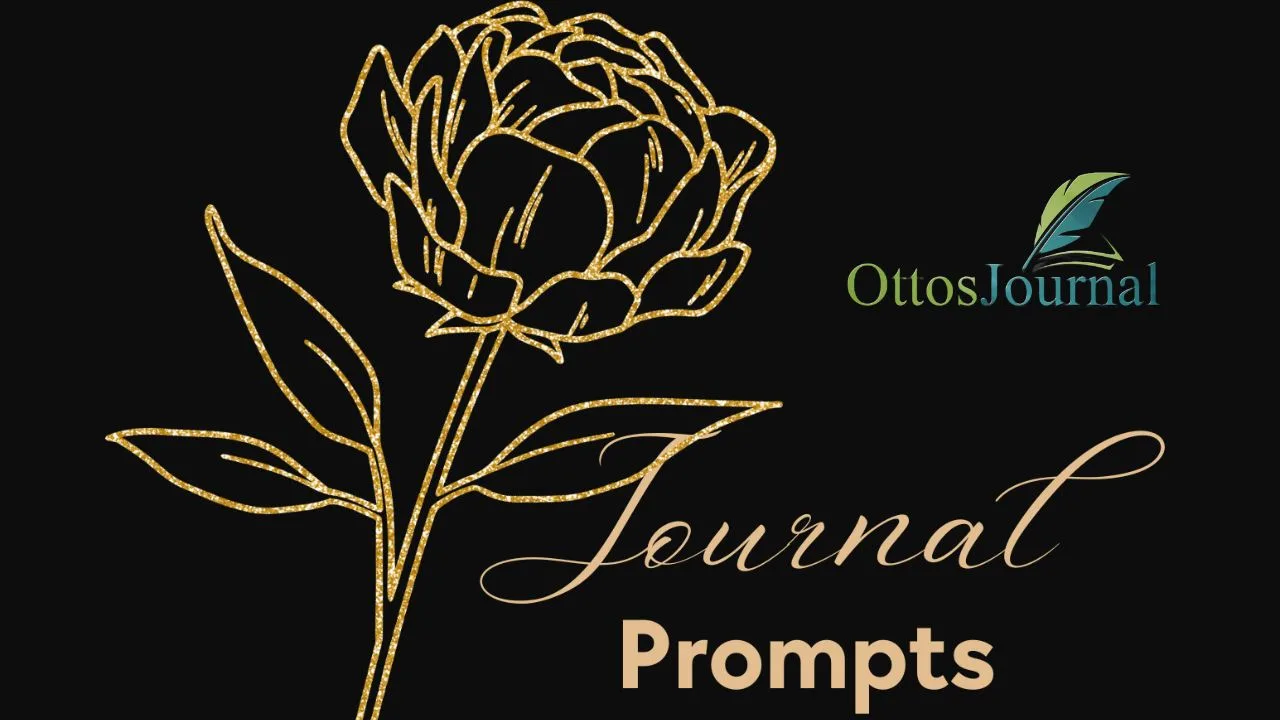Mindful journal prompts can help students develop a sense of awareness and focus, as well as improve their mental health and well-being. By engaging in mindful journaling, students can become more self-aware and reflective, which can help them better understand their thoughts, emotions, and behaviors. Mindful journaling can help students identify patterns in their thinking and behavior, and develop strategies to overcome negative thought patterns and behaviors. In this blog post, I will share with you 45 Mindful Journal Prompts For Students to help you stay mindful and positive.
Mindful journal prompts for students can be designed to help them focus on the present moment, cultivate a sense of gratitude, and develop a positive mindset. Some prompts may encourage students to reflect on their goals and aspirations, while others may encourage them to explore their emotions and feelings.
What is Mindfulness for Students
Mindfulness is a state of being aware of the present moment, without judgment or distraction. It is a skill that can be developed and practiced, and it has been shown to have many benefits for students, including improved focus, reduced stress and anxiety, and better academic performance.
Science of Mindfulness in Studies
Research has shown that mindfulness can have a positive impact on mental health and wellbeing. Studies have found that practicing mindfulness can help reduce symptoms of anxiety and depression, improve sleep quality, and increase resilience to stress. In addition, mindfulness has been shown to improve cognitive function, including attention, working memory, and decision-making.
Benefits of Mindfulness in Education
In the context of education, mindfulness has been shown to have many benefits for students. By helping students develop greater awareness of their thoughts and feelings, mindfulness can improve their ability to regulate their emotions and behavior. This can lead to better social and emotional skills, as well as improved academic performance.
Moreover, mindfulness can help students develop greater focus and concentration, which can be especially beneficial in the classroom. By learning to be more present and attentive, students can better absorb and retain information, leading to better academic outcomes.
Mindfulness is a powerful tool that can help students improve their mental health and wellbeing, as well as their academic performance. By practicing mindfulness regularly, students can develop greater awareness, focus, and calm, leading to a more fulfilling and successful life.
Journaling as a Mindful Practice for Students

Journaling is a form of writing that involves recording daily events, thoughts, and feelings. It can be a therapeutic habit that promotes personal growth and self-awareness. Mindful journaling takes this practice a step further by incorporating mindfulness techniques into the writing process.
The Art of Mindful Journaling
Mindful journaling is a practice that involves being present and aware of one’s thoughts and feelings while writing. It requires a non-judgmental attitude towards oneself and one’s experiences. By observing and accepting one’s thoughts and feelings, individuals can gain insight into their emotions and patterns of behavior.
To practice mindful journaling, one can start by setting aside a few minutes each day to write down their thoughts and feelings. It is important to create a quiet and comfortable space where one can focus on the writing process. One should aim to write without any distractions or interruptions.
Incorporating Mindfulness into Daily Journaling
One can incorporate mindfulness techniques into daily journaling by using mindfulness writing prompts. These prompts are designed to help individuals reflect on their experiences and emotions in a non-judgmental way.
Mindfulness journal prompts can be used to explore different aspects of one’s life, such as relationships, self-care, and personal values. They can also be used to cultivate positive emotions, such as gratitude and compassion.
Mindful journaling is a powerful practice that can promote personal growth and self-awareness. By incorporating mindfulness techniques into daily journaling, individuals can gain insight into their emotions and patterns of behavior. It is a habit that can be easily integrated into one’s daily routine and can have a positive impact on mental health and well-being.
45 Mindful Journal Prompts For Students

- Reflect on the most interesting thing you learned today.
- Identify your biggest challenge in school right now and explore how it makes you feel.
- Describe a moment from today where you felt completely focused and absorbed.
- Acknowledge any academic pressures you’re facing and consider their sources.
- Capture your thoughts and feelings about an upcoming test or project.
- Notice any changes in your attitude towards school this year.
- Focus on a subject you enjoy and write about what captivates you.
- Examine your study habits and how they affect your school performance.
- Consider the last time you helped a classmate and how it made you feel.
- Record how you manage stress related to schoolwork.
- Visualize your ideal study environment and describe it in detail.
- Appreciate a teacher or mentor who has made a positive impact on you.
- Contemplate the role of education in your life and its long-term benefits.
- Connect with your future goals and how your current education supports them.
- Question what success in school means to you and how you can achieve it.
- Investigate a recent success or failure and what you learned from it.
- Assess how you balance school with other activities and responsibilities.
- Ponder the ways you can be more mindful during class.
- Discover something new about your learning style.
- Embrace an academic subject that challenges you and explore why.
- Challenge yourself to think about your future career and the steps to get there.
- Release any negative self-talk about your abilities and write a positive affirmation.
- Dedicate a few minutes to write about your favorite school memory so far.
- Confront your procrastination habits and think about ways to overcome them.
- Yield to the present moment and describe how it feels to let go of future worries.
- Anchor your thoughts on a recent positive interaction at school.
- Revisit your academic goals for the year and reflect on your progress.
- Inquire within about what motivates you to study and learn.
- Absorb the details of a conversation you had today and its impact on you.
- Balance your perspective on teamwork and individual work in school settings.
- Relinquish the need for perfection in your schoolwork and write about what that means.
- Expand on the importance of breaks and relaxation amidst your studies.
- Yield to a creative impulse and write a poem or short story.
- Anchor your intentions for the next school day and how you plan to achieve them.
- Reaffirm your commitment to a school project and outline your plan.
- Integrate mindfulness into a routine activity at school and describe the experience.
- Cherish a recent accomplishment, no matter how small it may seem.
- Align your daily actions with your core values as a student.
- Immerse yourself in recalling a recent educational trip or event.
- Disengage from distractions for a period and journal about the effects on your studies.
- Venture into your thoughts about the balance between school life and personal life.
- Rekindle your passion for a subject that has lost its spark for you.
- Kindle your curiosity by asking a question about a topic and exploring possible answers.
- Unveil your feelings about the social aspect of school and its impact on you.
- Summon the courage to face a difficult subject or task head-on and plan your approach.
Crafting Effective Mindful Journal Prompts

Journaling is a powerful tool that helps students develop self-awareness, emotional intelligence, and academic performance. Crafting effective mindful journal prompts can help students explore their emotions, build resilience, and foster personal development.
Prompts for Self-Discovery
Mindful journal prompts for self-discovery help students reflect on their experiences, thoughts, and feelings. These prompts encourage students to explore their inner selves and develop a deeper understanding of their values, beliefs, and goals.
Examples of prompts for self-discovery include:
- What are some of the things that make you happy?
- What are your core values, and how do they influence your decisions?
- What are some of the challenges or obstacles that you have overcome in your life, and how did you do it?
- What are your strengths, and how can you use them to achieve your goals?
Prompts for Emotional Growth
Mindful journal prompts for emotional growth help students cultivate self-compassion, gratitude, and emotional regulation. These prompts encourage students to explore their emotions, develop a positive mindset, and build resilience.
Examples of prompts for emotional growth include:
- What are some of the things that you are grateful for in your life?
- What are some of the things that you love about yourself?
- What are some of the things that you find challenging, and how can you overcome them?
- How can you cultivate self-compassion when you are facing difficult emotions?
Prompts for Academic Enhancement
Mindful journal prompts for academic enhancement help students reflect on their academic performance, set goals, and develop study habits. These prompts encourage students to develop a growth mindset, build self-efficacy, and improve their academic performance.
Examples of prompts for academic enhancement include:
- What are some of the study habits that you find effective, and how can you incorporate them into your routine?
- What are some of the areas that you need to improve in your academic performance, and how can you do it?
- What are some of the academic goals that you want to achieve, and how can you work towards them?
- How can you use mindfulness to enhance your academic performance?
Implementing Mindful Journaling in the Classroom
Mindful journaling is an excellent way to teach students how to be more mindful and self-aware. By implementing mindful journaling in the classroom, students can learn how to better understand their thoughts and emotions, which can help them cope with stress and anxiety.
Creating a Mindful Classroom Environment
Creating a mindful classroom environment is crucial for implementing mindful journaling. Teachers can start by setting aside a few minutes each day for mindfulness activities, such as deep breathing or guided meditation. This can help students relax and focus on the present moment, which can improve their overall well-being.
Teachers can also create a calm and peaceful atmosphere in the classroom by using soft lighting, calming music, and comfortable seating. By creating a calming environment, students can feel more relaxed and focused, which can help them engage in mindful journaling.
Mindfulness Activities for Students
There are many mindfulness activities that teachers can use to help students engage in mindful journaling. For example, teachers can provide students with printable handouts that include mindfulness exercises and prompts. These handouts can be used as a guide for students to reflect on their thoughts and emotions.
Teachers can also encourage students to write about their day, their thoughts, and their feelings. By writing in a journal, students can learn how to express themselves in a healthy and productive way, which can improve their overall mental health.
Implementing mindful journaling in the classroom can be a powerful tool for teaching students how to be more mindful and self-aware. By creating a mindful classroom environment and providing students with mindfulness activities and prompts, teachers can help students develop the skills they need to cope with stress and anxiety and lead a more mindful life.
Frequently Asked Questions
What are some effective mindfulness journal prompts to support student mental health?
Mindfulness journal prompts that can support student mental health include: “What am I grateful for today?”, “What are some positive things that happened to me today?”, “What are my goals for the day/week/month?”, “What are some ways I can practice self-care today?”, and “What are some things I can do to manage stress?.
Can you suggest daily mindfulness journal prompts that can be completed within five minutes?
Yes, some daily mindfulness journal prompts that can be completed within five minutes include: “What am I feeling right now?”, “What are some things that I appreciate about myself?”, “What are some things that I am looking forward to today?”, “What are some things that I am proud of?”, and “What are some things that I am thankful for?”.
What types of mindful journal prompts are beneficial for enhancing students’ self-awareness?
Mindful journal prompts that are beneficial for enhancing students’ self-awareness include: “What are my strengths?”, “What are my weaknesses?”, “What are some things that I can do to improve myself?”, “What are some things that I can do to be more mindful?”, and “What are some things that I can do to be more present in the moment?.
How can mindfulness journaling be used to improve students’ emotional well-being?
Mindfulness journaling can be used to improve students’ emotional well-being by helping them to identify and process their emotions. Journaling can help students to express their feelings in a safe and non-judgmental way, which can help them to better understand and manage their emotions. Mindfulness journaling can help students to develop a more positive outlook on life, which can lead to increased feelings of happiness and well-being.
What are some thought-provoking prompts that can be included in a mindfulness journal for students?
Some thought-provoking prompts that can be included in a mindfulness journal for students include: “What are some things that I am afraid of?”, “What are some things that I am passionate about?”, “What are some things that I want to achieve in my life?”, “What are some things that make me happy?”, and “What are some things that make me sad?.
Are there any professional mindfulness journal prompts designed specifically for student stress management?
Yes, there are many professional mindfulness journal prompts designed specifically for student stress management. Some examples of these prompts include: “What are some things that I can do to manage my stress?”, “What are some things that I can do to relax and unwind?”, “What are some things that I can do to improve my sleep?”, and “What are some things that I can do to improve my overall health and well-being?”.




